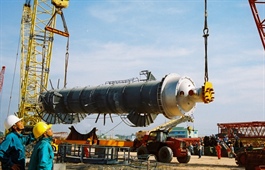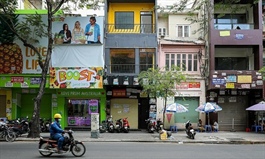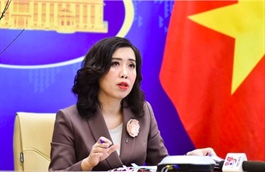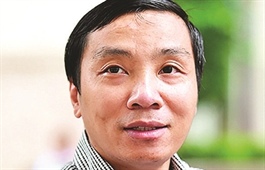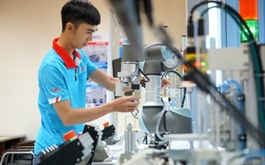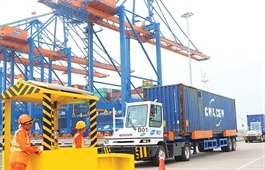Vietnam leads destinations for shifting Japanese investment
Vietnam leads destinations for shifting Japanese investment
In order to implement the program supporting the diversification of the Japanese government’s supply chain, dozens of Japanese enterprises have chosen Vietnam as an investment destination for 2021.
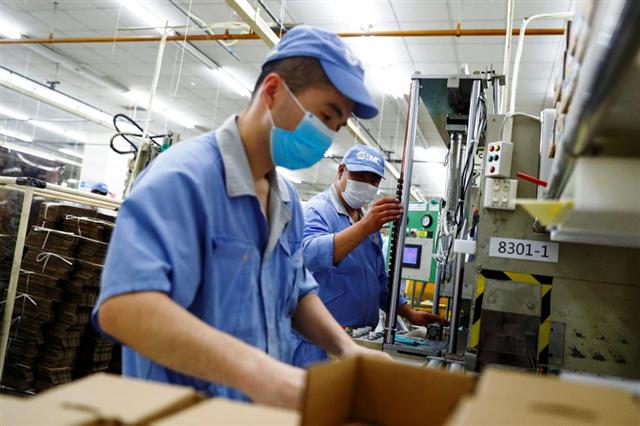
Vietnam has attracted Japanese investors through M&A deals
|
Conditions in Vietnam lure investors
So far, 37 Japanese enterprises have announced plans to move production to Vietnam in the context of post-pandemic supply chain shift.
According to Japanese Ambassador to Vietnam Yamada Takio, Vietnam is the best choice for Japanese companies seeking supply chain diversity. In 2020, 37 out of 81 Japanese enterprises joining the program wanted to invest in Vietnam. Thailand was second with 19 votes. The Japanese government is also focusing resources to help their businesses invest in Vietnam, specifically the US$2.3 billion support package of the supply chain diversification program. Most of the companies that received subsidies operate in the field of medical equipment manufacturing, semiconductors, phone components, air conditioners and power modules.
Vietnam’s 12 active free trade agreements (FTAs) are also an attractive lure for Japanese enterprises, providing tax reduction incentives for exporters of made-in-Vietnam goods to major markets around the world such as the US and Europe.
Yet another consideration swaying Japanese firms are production costs compared to many other countries in the region, and the government is constantly improving business conditions, logistic infrastructure and technology platforms. According to the Asian Development Bank (ADB) estimate, about 5.8 percent of Vietnam’s gross domestic product (GDP) is spent on infrastructure development, the highest level of investment spending in Southeast Asia. In addition, the government’s promotion of public investment has helped improve infrastructure, facilitating trade and attracting FDI inflows, including Japanese investors.
However, Vietnam also faces many challenges in welcoming the wave of investment shifts. Chief Representative of the Japan External Trade Organization (JETRO) in Ho Chi Minh City Hirai Shinji noted that Vietnam faces fierce competition from other countries in the region such as India, Thailand, and Indonesia in attracting investment due to cumbersome administrative procedures and complicated value added tax (VAT) refund procedures for manufacturing enterprises.
M&A trend of Japanese investors
According to experts, the Vietnamese market has great potential not only for large Japanese corporations but also for small and medium enterprises (SMEs) which tend to invest in other localities instead of focusing on Hanoi and Ho Chi Minh City.
According to Masataka Sam Yoshida, Global Director of Cross-border M&A services of the RECOF Corporation, there was a surge in post-pandemic M&A by Japanese companies because most sectors in Japan are seeking new potential markets. The M&A growth strategy is supported by the abundant money source in Japan accumulated over the past 20 years with more than US$2.34 trillion in reinvestment by shareholders, yielding a record 4,000 M&A deals in 2019.
Vietnam benefitted from the largest number of M&A deals with 33 in 2019, 1.5 times higher than the previous year. In 2020, 21 M&A deals of Japanese companies were conducted in Vietnam with a value of US$282 million. Vietnam surpassed Indonesia and ranked second in terms of both sales and value, just behind Singapore (US$2 billion). Specifically, SSJ Consulting Limited Liability Company, a subsidiary of Sumitomo Corporation, bought 10 percent of capital in Gemadept. Sumitomo Life also spent an additional VND4 trillion to increase its ownership in Bao Viet to 22 percent, Japan’s Aozora Bank bought 11 percent of capital from Orient Commercial Joint Stock Bank (OCB Bank); ASKA Pharmaceutical Company Limited bought 24.9 percent of capital of Ha Tay Pharmaceutical Joint Stock Company. Most recently, Mitsubishi Materials bought 10 percent of capital from Masan High-Tech Materials Joint Stock Company.
Once the pandemic travel restrictions are lifted, a huge wave of Japanese investors seeking M&A deals in Vietnam is expected.



